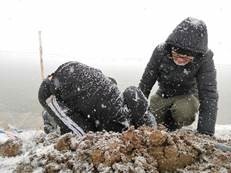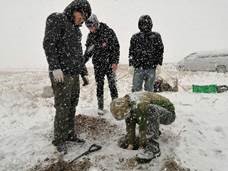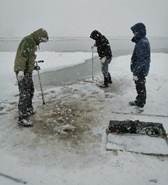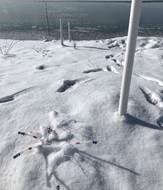From November 27th to December 2nd, relying on the Youth Innovation Promotion Project of CAS and the second comprehensive scientific survey of the Qinghai-Tibet Plateau, ISL, the Southern University of Science and Technology, Hong Kong University and Qinghai Normal University installed a groundwater sampler In Qinghai Lake. After three detailed surveys of Qinghai Lake, it was finally determined that a groundwater sampler and a groundwater monitor were installed at the junction of Buha River and Qinghai Lake, the largest river in Qinghai Lake.
As an important part of the Qinghai-Tibet Plateau, the Qinghai Lake Basin is an important water body for maintaining ecological security in the northeast of the Qinghai-Tibet Plateau. It is the intersection of the three major regions of the western arid region, the eastern monsoon humid region and the Qinghai-Tibet Plateau. It is also the largest inland closed lake in China. Affected by the monsoon and westerly circulation, its unique geographical location and huge water area are extremely sensitive to climate and environmental changes. It belongs to the global climate change sensitive areas and typical fragile areas of ecosystems. It is a study of environmental changes such as lake, river and groundwater Ideal location.
The Qinghai Lake field survey and instrument installation lasted nearly one week. The scientific research personnel dug up the frozen soil, penetrated the ice layer, and installed the equipment in the submerged zone. This field trip carried forward the spirit of tenacity, optimism, hard work, fear of danger, and unity and cooperation. The scientific research personnel have overcome the difficulties of plateau response and defeated the severe plateau climate such as extreme cold and hypoxia and strong wind and dust. Under the extremely difficult environment, the installation of the instrument was successfully completed.

Researchers dig up frozen ground (1)

Researchers dig up frozen ground (2)

The researchers broke through the ice

Sampler equipment
.
